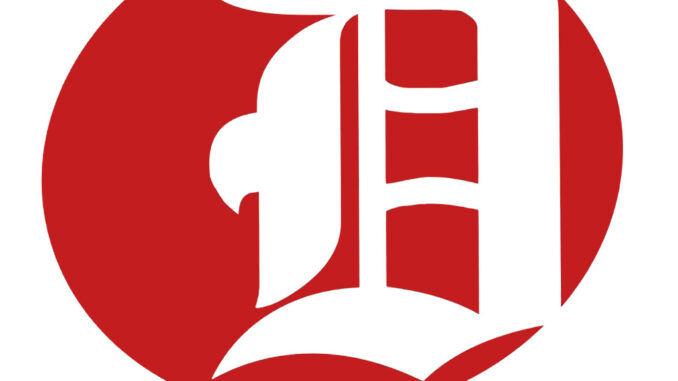
Zach Petroff | Opinions Editor
Aug. 25, 2022
This past summer, America took part in one of its most consistent traditions dating back to the mid-20th century: economic turmoil.
Opponents of the current administration classify this current economic situation as a recession. The White House has adamantly denied this, stating in a news-release that, “While some maintain that two consecutive quarters of falling real GDP constitutes a recession, that is neither the official definition nor the way economists evaluate the state of the business cycle…”
That sounds more like an eloquent way to say, “The economy is failing, but just in a non-traditional way.”
While talking heads in the political realm bicker over semantics, the American people saw consumer prices rise 9.1% (per the Bureau of Labor Statistics), the largest increase in over 40 years. Gas prices soared to the highest amount they have ever been at an estimated 51% increase from a year ago nationwide, according to the U.S. Energy Information Administration.
Americans are not looking for clarification on what defines economic anomalies. They want change, they want to not have the uncertainty that is facing so many families across the country.
However, some Americans are seeking comfort from these tumultuous economic times by finding ways to place blame on their opposing political party. The same age-old arguments tied to political partisanship are being regurgitated from mouth pieces whose moral outrage is guided by his/her thin-veiled political ideologies.
It does seem that there is an irrational loyalty to an economic hierarchy, and our political leanings give almost a clemency to perpetrators as long as their political identities align close to our own.
I once asked someone whose opinions I respect: What is the measure of a good economy? His answer — the deficit. When asked the same question four years later with a different political party in the majority, his answer changed to the unemployment rate. The lack of consistency we have with holding those making economic decisions accountable greatly diminishes our chances of actually enacting change.
It is puzzling that, despite supposedly having the strongest economy in the history of the world, we find ourselves in economic crises seemingly every decade. These economic downfalls have a tendency to hit the lower economic classes the hardest, forcing the majority of American people to carry the brunt of the consequences of the wealthy elite.
When the economy tanks, it decreases cash flow. Those that have assets may see a temporary decrease in their assets’ value, but a majority of America’s wealth consists of cash, savings and a relatively small stake in the market. While a majority of American people will watch their savings deplete, the wealthy can hold strong as the value of their assets will eventually return.
It almost seems like the game is rigged.
In an attempt to muster support before the midterm elections, the Biden administration was able to pass the Inflation Reduction Act of 2022. This is a watered down version of the “Build Back Better” legislation that the Democratic Party was unable to get passed with a majority in the House of Representatives and the Senate.
It is a feeble attempt that does not cover nearly enough to prevent the economic crisis that this country has been bracing for since the turn of the century. Republicans are criticizing it with their usual hot button terms like socialism and big government. These ideas and accusations are so off the mark that one has to wonder if they’re genuine.
The Democrats appear inefficient at self-reflection and are so afraid to criticize members of their own party as if the whim of the American voter could drastically change when any sort of criticism is aimed at their own party.
The Inflation Reduction Act of 2022 only delays the inevitable. As the gap between the wealthy and the rest of us keeps increasing, these subtle changes and half-hearted attempts to hold the economic elites accountable is not nearly strong enough to change the trajectory of the American economic landscape.
A 15% tax increase to the corporations and individual estates that profited over a billion dollars in a period of three years, the increase in the IRS’s budget to try to capture tax-evading wealthy individuals and the expansion of Medicare benefits sound promising on paper. However, this administration is just scratching the surface when it comes to our economic woes.
There is a true lack of investment in your everyday, modern American citizen. This country’s wealth and economic capabilities are influenced by a wealthy elite ruling class and major corporations. As these wealthy elites garnish more wealth, a section of the American people are left on the outside looking in.
The housing market is in a serious flux as property values will plummet back to normalcy, causing a level of value disruption that could have some very unfortunate consequences. Rent across the nation keeps steadily climbing. It is almost impossible to receive a higher education without incurring a massive amount of debt that will seemingly never be able to get paid off. Wages have stayed stagnant while laborers are asked to do more. Small businesses are being absorbed by the massive corporations. Wall Street is an exclusive, members-only club, a club that feels like it’s benefiting only a few predetermined individuals.
We need practical regulations.
This needs to be an economy that works for everybody, not just a privileged few.
